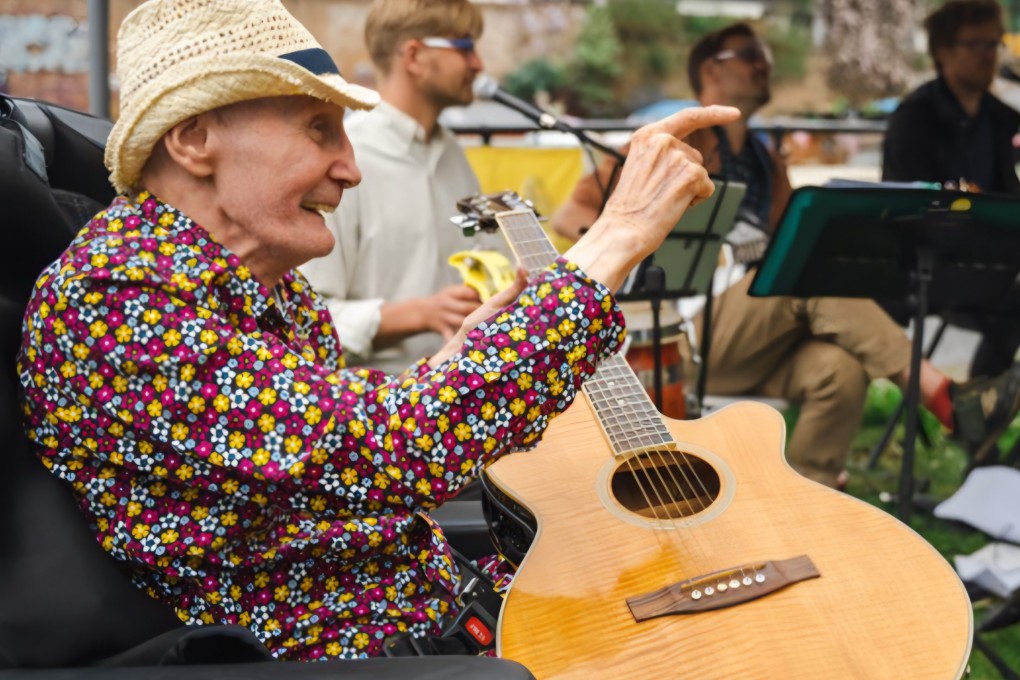How music touches dementia patients, bringing back memories and abilities believed to have been lost – experts explain
- ‘Sometimes the results can be extraordinary and profoundly moving,’ says woman in UK working to bring music to people affected by dementia
- Playing familiar pieces of music ‘opens up communication opportunities’ in people with dementia, says Hong Kong researcher behind a music-and-movement programme

A kind reader wrote to express gratitude for the Post’s series of articles on dementia. He was 85 years young and still active, although only going to the gym “four times a week now”, which made me smile. In his spare time, he listens to music CDs.
We need to talk about music and dementia, he wrote. And he is right: more and more, studies show that listening to music is both good for our brain health and can play a positive role in dementia care.
“Music is received in the hippocampus and amygdala, the areas of the brain associated with emotion and memory, which is why it can have such powerful effects on people living with dementia,” she says.
“If you perform a brain scan of someone listening to music, the screen will light up like a fireworks display. If parts of the brain are damaged, the music can still reach other parts, sometimes bringing back memories and even abilities thought lost.”